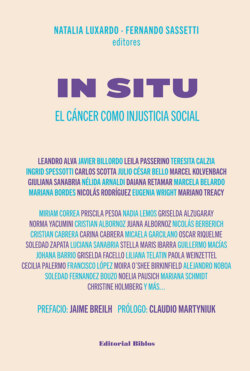Читать книгу In situ. El cáncer como injusticia social - Natalia Luxardo - Страница 40
На сайте Литреса книга снята с продажи.
Virchow: medicine as science – Today: evidence-based medicine
ОглавлениеIt is known that during the last three decades, the thinking part of German physicians aims to re-establish the connection between medicine and the natural sciences […] and that medicine in the rank of a natural science, as the science of the human, as Anthropology in the widest sense, should ideally be conceptualized as the greatest natural science. (Virchow, 1849)
In this statement, several important characteristics of medicine are outlined, which are still key in practice today. The grounding of medicine in observation and experimentation, the understanding of disease as an objective entity to be studied using the methods of the natural sciences (Roelcke, 2017), are key components of clinical trial methodologies and evidence-based medicine. Statistics and clinical epidemiology, as core disciplines for a science-based medicine, gained but slow recognition in German medicine, though this has gained rapid momentum in the last 20 years. Since Virchow’s times, medicine has clearly situated itself as one of the most influential sciences in German academia. The role played by anthropology and race theories in the scientific foundation of the Third Reich, however, diminished not only their role in medicine after the war, but also collaborative research between the disciplines, so that in Germany today biological anthropology does not exist and medical anthropology has only a weakly institutionalized role. This trend may be reversing, as students of anthropology are often interested in cross-disciplinary works, as are some medical students. Yet, the turn of anthropology away from essentialist ideas and objectifying sciences, as well as the influence of postcolonial studies, have moved anthropology far beyond Virchow’s ideas. I will return to the link between medicine and anthropology later.
Virchow demanded mortality and morbidity statistics – Scientists today demand evidence-based health policy.
It seemed of utmost importance to have statistics of mortality and morbidity for the city [Berlin] as it provides information about the source and severity of dangers which may afflict the citizens. This is the basis for deciding how to tackle the dangers. None of the smaller cities in Germany provide such opportunities for these questions so important for academia. (Virchow, 1859)
The use of statistics as a means to exert power over the people is considered paramount for the evolution of nation states. Virchow, in his statement above, considers statistics to be an important part of political engagement and urban planning. One needs to diagnose and name the situation in order to find the right (political) remedies. Health statistics today have gained momentum as never before. Studies into the worldwide burden of disease, numerous international health organizations, but also national health reporting are today crucial steering instruments for investment and policy decision-making. Social epidemiology in Germany is well-established at the national level (Lampert, 2005; Lampert & Koch-Gromus, 2016; Bolte et al., 2012; Lehne & Bolte, 2019).
Virchow worked towards the dissemination of scientific knowledge – Today science journalism, as an important medium for knowledge transfer and marketing, is an important tool of academia.
It is our main task to help our audience have the necessary abilities to think freely and independently, because free thinking needs information and critique, the true certainty of information is based on knowledge of the development of things. (Virchow, 1922)
Virchow worked hard to make his scientific work available to the working class. He believed in reducing poverty by reducing ‘ignorance’ in society. He used what we today would call ‘lay language’ to teach in public spaces and gave lectures to the ‘common people’. Education, knowledge translation, and more recently numeracy and health literacy are today being called for in the German health care system and elsewhere. In it embedded is a hierarchical understanding of what right knowledge is and what people should know, what Davic Cantor and others have called “the empty vessel” that is filled with correct information.
